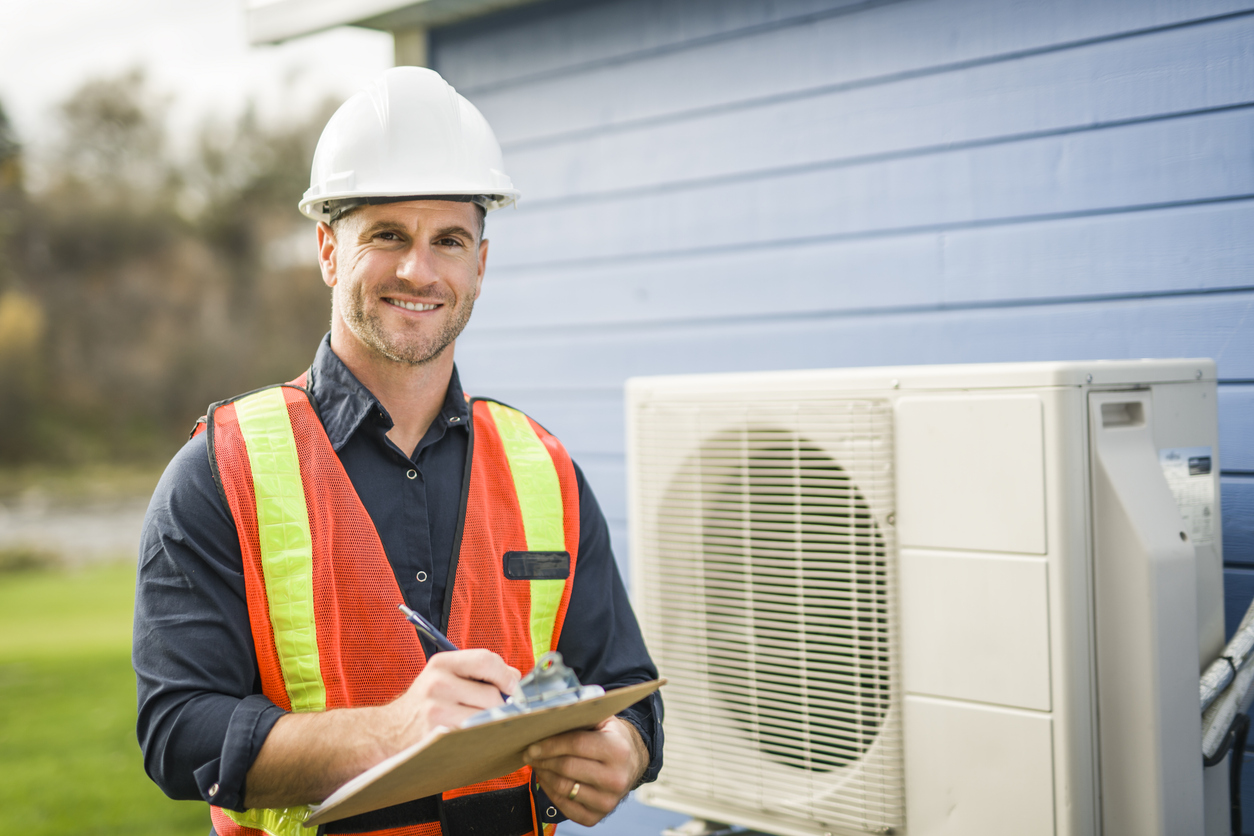
Seasonal HVAC maintenance does more than keep systems running efficiently — it supports customer satisfaction and keeps technicians safe on the job. But every inspection or tune-up brings potential risks. That’s why having the right contractors insurance is just as essential as replacing a worn air filter.
Pre-Season HVAC System Checks
HVAC systems work their hardest during seasonal transitions, when temperature extremes demand reliable performance. Getting ahead of this demand with a thorough maintenance check can prevent breakdowns, reduce callbacks, and extend system life.
Key pre-season tasks include replacing air filters, checking refrigerant levels, inspecting electrical connections, and verifying system controls like compressors and thermostats.
These inspections are especially important for larger commercial systems that run year-round. Catching issues early minimizes the need for emergency calls and keeps systems running smoothly.
Common Issues To Address After Winter
Freezing temperatures can leave HVAC systems vulnerable. During spring tune-ups, technicians often uncover frozen or damaged evaporator coils, cracked condensate drain lines, and wiring problems due to moisture or rodent activity.
Addressing these problems promptly prevents further equipment damage, maintains efficiency, and reduces the potential for costly repairs or property damage. For HVAC contractors, it also reduces liability exposure and protects your reputation.
Safety Protocols During Maintenance
Working with refrigerants, electrical systems, and pressurized components poses serious safety risks. Technicians should always wear appropriate protective gear, follow lockout/tagout procedures, and use job-specific tools to minimize hazards.
Still, even with precautions, accidents happen. According to the U.S. Bureau of Labor Statistics, HVAC technicians face one of the highest rates of workplace injuries. That’s why a comprehensive contractors insurance program — particularly general liability and workers’ compensation — is essential.
Workers’ comp helps cover medical costs and lost wages for injured employees, while general liability insurance protects against third-party property damage or injuries caused on the job.
How Contractors Insurance Provides Protection
A strong insurance plan protects HVAC contractors from the everyday risks of the job. Key coverages include the following.
- General liability insurance: This coverage is for third-party bodily injury or property damage, such as a client tripping over equipment or accidental damage during a service call.
- Workers’ compensation insurance: Required in most states, this insurance helps pay for medical care, lost wages, and rehab costs for injured employees.
- Contractor’s equipment coverage: It protects tools and equipment from theft, damage, or loss, whether on-site, in transit, or in storage.
Together, these coverages form a financial safety net so contractors can stay focused on doing quality work without unexpected setbacks.
At ISU Sine Insurance Group, we work directly with HVAC contractors to design insurance programs tailored to their operations — whether your business focuses on installations, service calls, duct cleaning, or commercial maintenance.
Protect Your HVAC Business Year-Round With Contractors Insurance
Seasonal maintenance is more than a service — it’s a risk-management strategy. As you gear up for peak season, now’s the time to review your coverage and close any gaps that could leave your business exposed.
Contact ISU Sine Insurance to make sure your contractors insurance gives you the coverage you need so you can handle any job with confidence.
About Sine Insurance
At Sine Insurance Group, we are dedicated to providing you with custom-tailored insurance policies to protect your assets. Our comprehensive packages have been expertly crafted to serve St. Louis and the surrounding areas for the past 25 years. For more information about our products, contact us today at (855) 700-0889.

